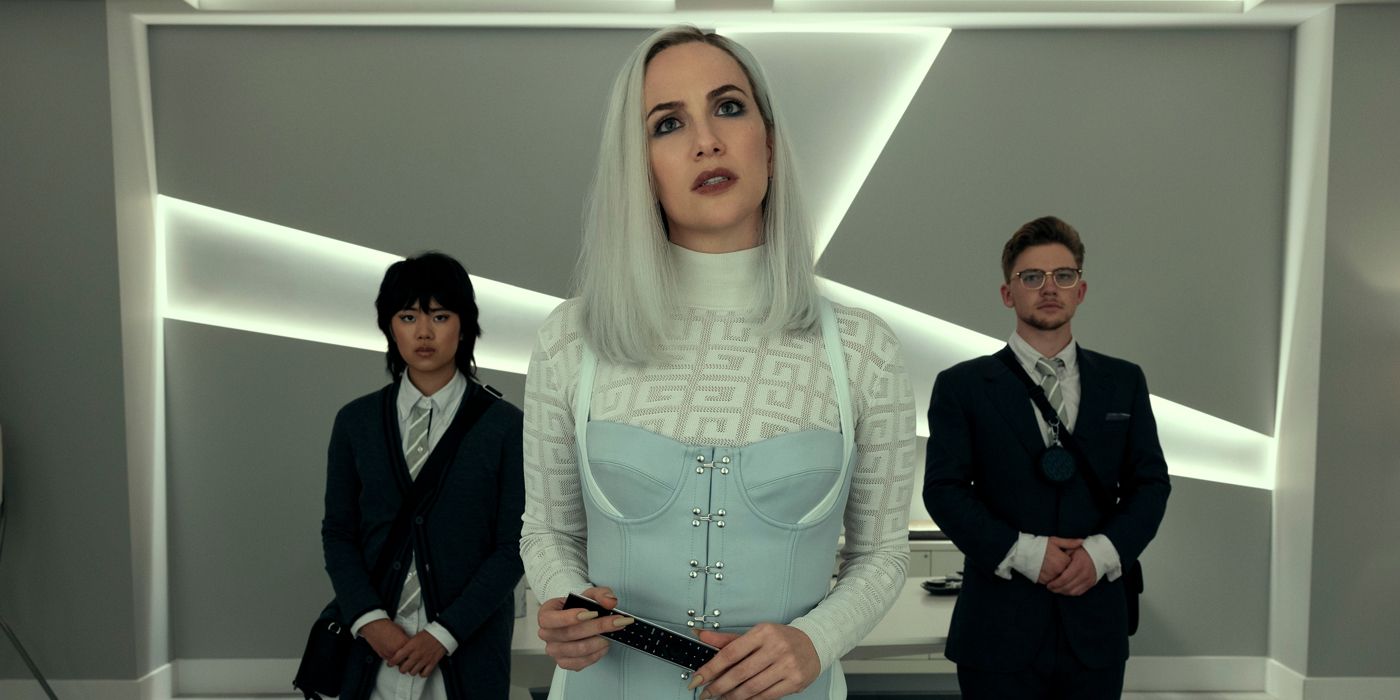Table Of Content
- Roderick Usher
- Episodes
- More Must-Reads From TIME
- Greatest Works of Edgar Allan Poe (Deluxe Hardbound Edition)
- A Summary and Analysis of Edgar Allan Poe’s ‘The Fall of the House of Usher’
- thought on “A Summary and Analysis of Edgar Allan Poe’s ‘The Fall of the House of Usher’”
- Family
- What deal did Verna make with Roderick and Madeline, and why did it result in the entire Usher family dying?

The bond between the brother and sister is inexplicable and intense. One can interpret that twin siblings are actually one person that is split into two. He illustrates himself as a mind to her body and suffers from the mental counterpart of his sister’s physical illness. The narrator also mentions that Roderick appears to be afraid of his own house. Madeline, the sister of Roderick, is taken with a mysterious illness that cannot be cured by the doctors. She is perhaps suffering from catalepsy in which one loses the control of his/her limbs.
Roderick Usher
Who (or what) is Verna, the terrifying and mysterious character in 'The Fall of the House of Usher'? - Business Insider
Who (or what) is Verna, the terrifying and mysterious character in 'The Fall of the House of Usher'?.
Posted: Mon, 23 Oct 2023 07:00:00 GMT [source]
It’s “Succession” meets The Tell-Tale Heart, a story of vengeance, power, betrayal, and bloody parts. As Roderick nears the conclusion of his story, which jumps back and forth between his early years working at Fortunato and the events that led up to each of his children's deaths, he finally arrives at the fateful night that changed everything, New Year's Eve of 1979. An unnamed narrator approaches the house of Usher on a “dull, dark, and soundless day.” This house—the estate of his boyhood friend, Roderick Usher—is gloomy and mysterious.
Episodes
The final episode finally reveals what Roderick and Madeline did—and were running from—all those years ago, and how they first got involved with Verna in the first place. Who entereth herein, a conqueror hath bin; Who slayeth the dragon, the shield he shall win. As the series draws to a close, Verna—whose name is an anagram of the titular bird in Poe's classic 1845 poem "The Raven"—is shown placing an item on each of the Usher's graves that represents their respective downfalls, closing the loop of her karmic retribution. Roderick then invited Madeline over to their childhood home, where he poisoned her drink and set to work mummifying her.
More Must-Reads From TIME
It was, especially, upon retiring to bed late in the night of the seventh or eighth day after the placing of the lady Madeline within the don-jon, that I experienced the full power of such feelings. Sleep came not near my couch—while the hours waned and waned away. I endeavoured to believe that much, if not all of what I felt, was due to the bewildering influence of the gloomy furniture of the room—of the dark and tattered draperies, which, tortured into motion by the breath of a rising tempest, swayed fitfully to and fro upon the walls, and rustled uneasily about the decorations of the bed. An irrepressible tremour gradually pervaded my frame; and, at length, there sat upon my very heart an incubus of utterly causeless alarm. Shaking this off with a gasp and a struggle, I uplifted myself upon the pillows, and, peering earnestly within the intense darkness of the chamber, hearkened—I know not why, except that an instinctive spirit prompted me—to certain low and indefinite sounds which came, through the pauses of the storm, at long intervals, I knew not whence. Overpowered by an intense sentiment of horror, unaccountable yet unendurable, I threw on my clothes with haste (for I felt that I should sleep no more during the night), and endeavoured to arouse myself from the pitiable condition into which I had fallen, by pacing rapidly to and fro through the apartment.

Poe was often dismissed by contemporary literary critics because of the unusual content and brevity of his stories. When his work was critically evaluated, it was condemned for its tendencies toward Romanticism. The writers and critics of Poe’s day rejected many of that movement’s core tenets, including its emphasis on the emotions and the experience of the sublime. Poe’s contemporaries favoured a more realistic approach to writing.
It turns out that almost every branch of the Usher family tree has been cut by violent horror. ” “No, not before,” he replies in one of the show’s many glimpses of Flanagan’s viciously dark sense of humor. (Poe had one too.) Roderick has been haunted by all his awful children who have shuffled off this mortal coil, and it’s because it feels like the ghosts are finally coming for him that he is ready to confess. He’s having visions of monstrous ghosts, including the recurring specter of Verna (Carla Gugino), a figure that connects most of these tall tales as a sort of vengeful force of karma, the devil come to take what she’s due from a man who profited off the pain of others.
thought on “A Summary and Analysis of Edgar Allan Poe’s ‘The Fall of the House of Usher’”
There can be no doubt that the consciousness of the rapid increase of my superstition—for why should I not so term it? And it might have been for this reason only, that, when I again uplifted my eyes to the house itself, from its image in the pool, there grew in my mind a strange fancy—a fancy so ridiculous, indeed, that I but mention it to show the vivid force of the sensations which oppressed me. A letter, however, had lately reached me in a distant part of the country—a letter from him—which, in its wildly importunate nature, had admitted of no other than a personal reply. The writer spoke of acute bodily illness—of a mental disorder which oppressed him—and of an earnest desire to see me, as his best, and indeed his only personal friend, with a view of attempting, by the cheerfulness of my society, some alleviation of his malady. It was the manner in which all this, and much more, was said—it was the apparent heart that went with his request—which allowed me no room for hesitation; and I accordingly obeyed forthwith what I still considered a very singular summons.
Family
Moreover, there is also an inverted dichotomy between Roderick Usher and Madeline Usher. The tone of the story “The Fall of the House of Usher” is deliberate. The narrator of the story is the center of the strange parts of the story. However, an important point should be kept in mind that the story is narrated in retrospect; that is why the deliberate tone of the story is not compromised by the frantic mania of a terrified narrator. The Fall of the House of Usher, supernatural horror story by Edgar Allan Poe, published in Burton’s Gentleman’s Magazine in 1839 and issued in Poe’s Tales of the Grotesque and Arabesque (1840). A television adaptation was produced by ATV for the ITV network in 1966 for the horror anthology series Mystery and Imagination.
What deal did Verna make with Roderick and Madeline, and why did it result in the entire Usher family dying?
Our glances, however, rested not long upon the dead — for we could not regard her unawed. The disease which had thus entombed the lady in the maturity of youth, had left, as usual in all maladies of a strictly cataleptical character, the mockery of a faint blush upon the bosom and the face, and that suspiciously lingering smile upon the lip which is so terrible in death. We replaced and screwed down the lid, and, having secured the door of iron, made our way, with toil, into the scarcely less gloomy apartments of the upper portion of the house. Our glances, however, rested not long upon the dead—for we could not regard her unawed.
The bedroom door is then blown open to reveal Madeline, bloodied from her arduous escape from the tomb. In a final fit of rage, she attacks her brother, scaring him to death as she herself expires. The narrator then runs from the house, and, as he does, he notices a flash of moonlight behind him. He turns back in time to see the Moon shining through the suddenly widened crack in the house. As he watches, the House of Usher splits in two and the fragments sink away into the lake. The windows were long, narrow, and pointed, and at so vast a distance from the black oaken floor as to be altogether inaccessible from within.
The family has no enduring branches, so all genetic transmission has occurred incestuously within the domain of the house. The peasantry confuses the mansion with the family because the physical structure has effectively dictated the genetic patterns of the family. The narrator finds the inside of the house just as spooky as the outside. He makes his way through the long passages to the room where Roderick is waiting. He notes that Roderick is paler and less energetic than he once was.
The Fall of the House of Usher: Biggest WTF Questions and Ending Explained - IGN
The Fall of the House of Usher: Biggest WTF Questions and Ending Explained.
Posted: Sat, 28 Oct 2023 07:00:00 GMT [source]
The House of Usher is a 2006 American drama thriller film based on the 1839 Edgar Allan Poe short story "The Fall of the House of Usher". The film was directed by Hayley Cloake and written by Collin Chang. While Roderick clearly felt lots of remorse for the collateral damage that his successes had caused through the years—Verna explicitly showed him the deaths he was responsible for—Madeline felt absolutely none. She instead blamed "the consumers," the people whose lives are made worse by taking in the products that they (and others) make available.
In a direct reference to Poe's most famous work (and how did we not see this coming with the name "LENORE"?!), A.I. Lenore only kept texting Roderick variations of, you guessed it, "Nevermore." “There is a lot about my job that I love, but there are moments like these that bring me no joy,” Verna tells her in her bedroom after a conversation that found Lenore telling Roderick that it wasn't too late to use Fortunato and the family's largesse for good. Keep in mind that Lenore still had this pureness of mind after seeing her mother burnt within in inch of her life by acid (thanks to Prospero's foolish orgy party) and then tortured by her father, who himself had just been brutally killed in a ridiculous freak accident.

No comments:
Post a Comment